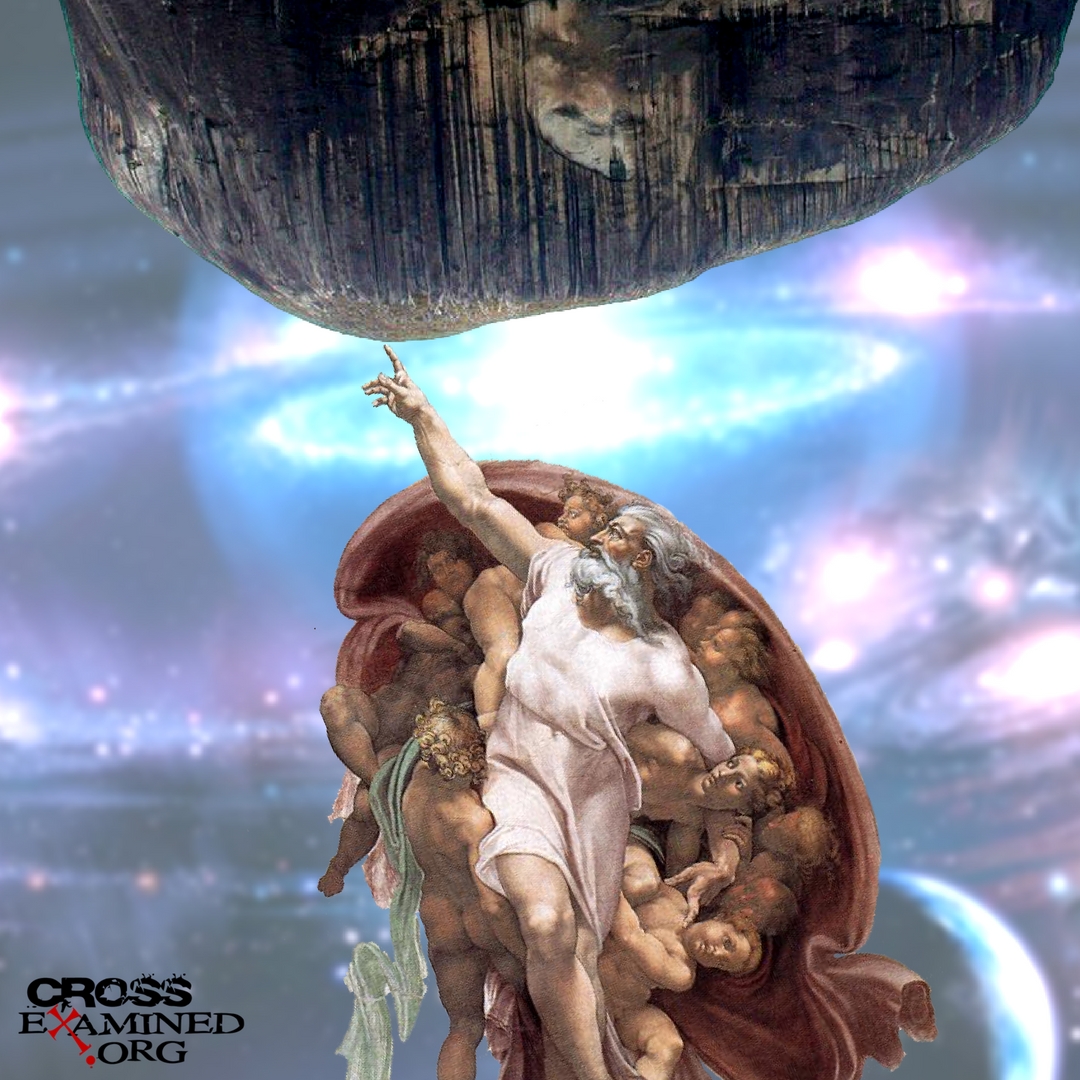What did Jesus think about the Old Testament?
It’s not uncommon for Christians to throw shade on the Old Testament. These Christians say they love Jesus, but they could do without those primitive Jewish texts. In fact, many Christians suggest that much of the Old Testament is ahistorical. Events such as the flood, Jonah being swallowed by a big fish, or the fiery judgment of Sodom and Gomorra never happened. And then there’s the infamous quote that Christians simply need to “unhitch themselves from the Old Testament” because much of it is embarrassing or difficult to understand. Why can’t we just focus on Jesus instead?
We can certainly sympathize with these sentiments. After all, the flood and Sodom’s judgment seem pretty incredible and kind of harsh to boot! Wouldn’t it just be easier to disregard this ancient corpus? This position seems reasonable until one realizes that the same Jesus these Christians adore also happens to hold the Old Testament in high regard. Not only does he affirm the Old Testament’s inspiration, he also affirms its historicity and authority.
The Old Testament is Inspired
Historically, Christians have affirmed the verbal plenary inspiration of the Bible. That is to say, they recognize that every word of Scripture is “God-breathed” (2 Tim 3:16-17). At the same time, God spoke through human agency. Therefore, Scripture not only has a divine author, it has human authors as well.
Jesus affirmed the human authors of the Old Testament. Repeatedly, he recognizes that Moses is the one who gave the Law (Matt 8:4; 19:8; Mark 1:44; 7:10; Luke 5:14; 20:37; John 5:46; 7:19). He’ll say things like “do what Moses commanded” (Mark 1:44). Or “Moses said, Honor your father and your mother” (Mark 7:10). With respect to other Old Testament authors, Jesus declares, “Well did Isaiah prophesy . . .” (Mark 7:6). Also, “David himself, in the Holy Spirit, declared . . .” (Mark 12:36). And “So when you see the abomination of desolation spoken of by the prophet Daniel . . .”(Matt 24:15). It’s worth noting that just about all critical scholars call into question the authorship of these individuals in clear contradiction to Jesus.
At the same time, Jesus affirms that these individuals wrote divinely inspired Scripture. As was just alluded to, Jesus noted in Mark 12:36, “David himself, in the Holy Spirit, declared, . . .” In other words, David wrote, but his writings were the result of the Holy Spirit’s work (2 Pet 1:20-21). He also declared “Well did Isaiah prophesy . . .” (Mark 7:6). The mere mention of prophecy suggests that Isaiah wrote from God. Prophecy, after all, is by definition “a word from God.” The same could be said for Matthew 24:15 when Jesus refers to Daniel as “the prophet.” Moreover, when speaking to the scribes and Pharisees, Jesus asserts, “You leave the commandment of God and hold to the tradition of men” (Mark 7:8). He then goes on to clarify that the commandment of God was what Moses wrote in Exodus 20.
As John Wenhan notes, “To [Jesus], Moses, the prophets, David and the other Scripture-writers were truly inspired men with a message given by the Spirit of God.”1
The Old Testament is Historically Accurate
While many are willing to grant the Old Testament’s inspiration, many of these same individuals deny that it’s historically accurate at every point. They might affirm its historical nature in general (God created the world, called Abraham and the Jewish people, the Jews were exiled, etc.), but they balk at some of the more challenging texts (the flood, Sodom, Jonah, etc.). That said, Jesus has no qualms about affirming the historical nature of the Old Testament—even the most difficult texts to believe. Here are a few examples:
He believed that Cain killed Abel (Luke 11:51), that God sent a flood but spared Noah in the ark (Matt 24:37-39), and that God destroyed Sodom because of their wickedness (Matt 11:23-24). He even adds, “Remember Lot’s wife” (Luke 17:32). Additionally, Jesus believed that God sent down manna from heaven (John 6:31), the Israelites were healed by looking at the serpent (John 3:14), and that Jonah was swallowed by a big fish only to be regurgitated three days later (Matt 12:39-41).
The last text about Jonah is especially significant because it demonstrates that Jesus didn’t simply view these events figuratively. For the end of the text reads, “The men of Nineveh will rise up at the judgment with this generation and condemn it, for they repented at the preaching of Jonah, and behold, something greater than Jonah is here” (Matt 12:41). It’s hard to imagine how Jesus could assert that Ninevah would rise up in the final judgment against the people who rejected him if they were make-believe. The same could be said for Jesus’ statement in Matthew 24:37: “For as were the days of Noah, so will be the coming of the Son of Man.” In other words, just as God’s judgment was poured out in the days of Noah, so it will be again in the final judgment.
Again, Wenham remarks, “It is evident that [Jesus] was familiar with most of our Old Testament and that he treated it all equally as history.”2
The Old Testament is Authoritative
Because Jesus believed the Old Testament was divinely-inspired, he also affirmed its full authority. He demonstrated this authority by appealing to the scriptures dozens of times.
When asked what were the greatest commandments, he declares that “You shall love the Lord your God with all your heart with all your soul and with all your mind. . . And the second is like it: You shall love your neighbor as yourself” (Matt 22:37-39). Jesus said that these two commands (Deut 6:4-6; Lev 19:18) sum up the totality of the Old Testament and are the guide to all ethical matters.
When facing temptation, Jesus appealed to the authority of Scripture to do battle against Satan. He repeatedly declares, “it is written, it is written, it is written” (Matt 4:1-11). Even as he was facing death, the final words on his lips were words from the Old Testament (Psalm 22:1; 31:5).
Jesus appeals to Genesis 1-2 when speaking about marriage and divorce. He asks, “Have you not read that he who created them from the beginning made them male and female, and said, ‘Therefore a man shall leave his father and his mother and hold fast to his wife, and the two shall become one flesh?’ So they are no longer two but one flesh. What therefore God has joined together, let no man separate” (Matt 19:4-6). By alluding to Genesis 1-2 here, Jesus asserts that his position on marriage and divorce is rooted in the authority of the Old Testament text. By contrast, Jesus’ opponents rooted their position in different Rabbis (Shammai and Hillel).
When disputing with the Sadducess about the resurrection, Jesus scolds them, “You are wrong, because you know neither the Scriptures nor the power of God” (Matt 22:29). In other words, the Scriptures give us the definitive, authoritative word about the resurrection. Jesus goes on to question them, “Have you not read what was said to you by God, I am the God of Abraham . . .?” (Matt 31-32) Again, Jesus appeals to the Old Testament text to assert God’s power over the resurrection.
Jesus goes so far as to state that “Scripture cannot be broken” (John 10:35). For Jesus, Scripture is so powerful, nothing can undo it.
Jesus and the Old Testament
All the evidence taken together suggests that Jesus held a high view of the Old Testament. Those who claim to hold Jesus in high regard but reject some of the Old Testament’s teachings are being inconsistent. If you hold Jesus in high regard, you must hold the Old Testament in high regard as well. As John Wenham notes:
“To Christ the Old Testament was true, authoritative, inspired. To him the God of the Old Testament was the living God, and the teaching of the Old Testament was the teaching of the living God. To him, what Scripture said, God said.” 3
*For more on this topic, see John Wenham’s book Christ and the Bible.
Recommended resources related to the topic:
Old Testament vs. New Testament God: Anger vs. Love? (MP3 Set) (DVD Set) (mp4 Download Set) by Dr. Frank Turek
Jesus, You and the Essentials of Christianity by Frank Turek (INSTRUCTOR Study Guide), (STUDENT Study Guide), and (DVD)
__________________________________________________________________________________________________________________________________________________
Ryan Leasure is a pastor at Grace Bible Church in Moore, SC. For more on his background and interests, click here.
Original Blog Source: https://cutt.ly/rQYMyUQ











